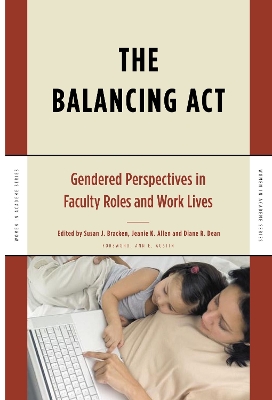Women in Academe
1 total work
This book is of interest to all women in faculty ranks. It deals with extensive academic marketing. Why are women not entering academic careers at a rate proportional to their degree attainment? And once they enter academe, why are they are not achieving tenure or gaining promotion at the same rate as men? How can deeper understanding of attitudes toward academic women combined with research on their experiences within the academic environment, in particular those balancing family and academic careers, help us to shape more responsive institutional policies and environments? These questions are all the more urgent during current times when institutions recognize the need to recruit more women and faculty of color to meet their changing missions and student demographics. This book argues that creating healthy and equitable work environments for women is good for the whole academic community. Indeed, the authors make the point that, as the feminization of academe continues, failure to implement gender equity and family friendly initiatives could be perilous. This book brings together new and original research - representing a broad range of institutional types - that reveals the pressures women face to postpone childbirth and limit the size of their families; that exposes the often the inequitable treatment of their scholarship when women are part of a dual-career couples; and that identifies other tacit and structural barriers to women's advancement. This book challenges assumptions about how men and women manage the boundaries between their personal and professional lives and suggests new ways to creatively and collaboratively combine productive work lives and satisfying personal lives. It shows how women have agency in structuring their careers and describes a multiplicity of solutions that they and institutions can adopt to create new couple- and family-friendly structures and practices that will encourage women to stay in the pipeline. This book, and its companion volumes in the ""Women in Academe"" series, offers compelling data and ideas both for women scholars seeking fulfillment in their professional and personal lives, and for administrators who recognize the need to transform their work places.
